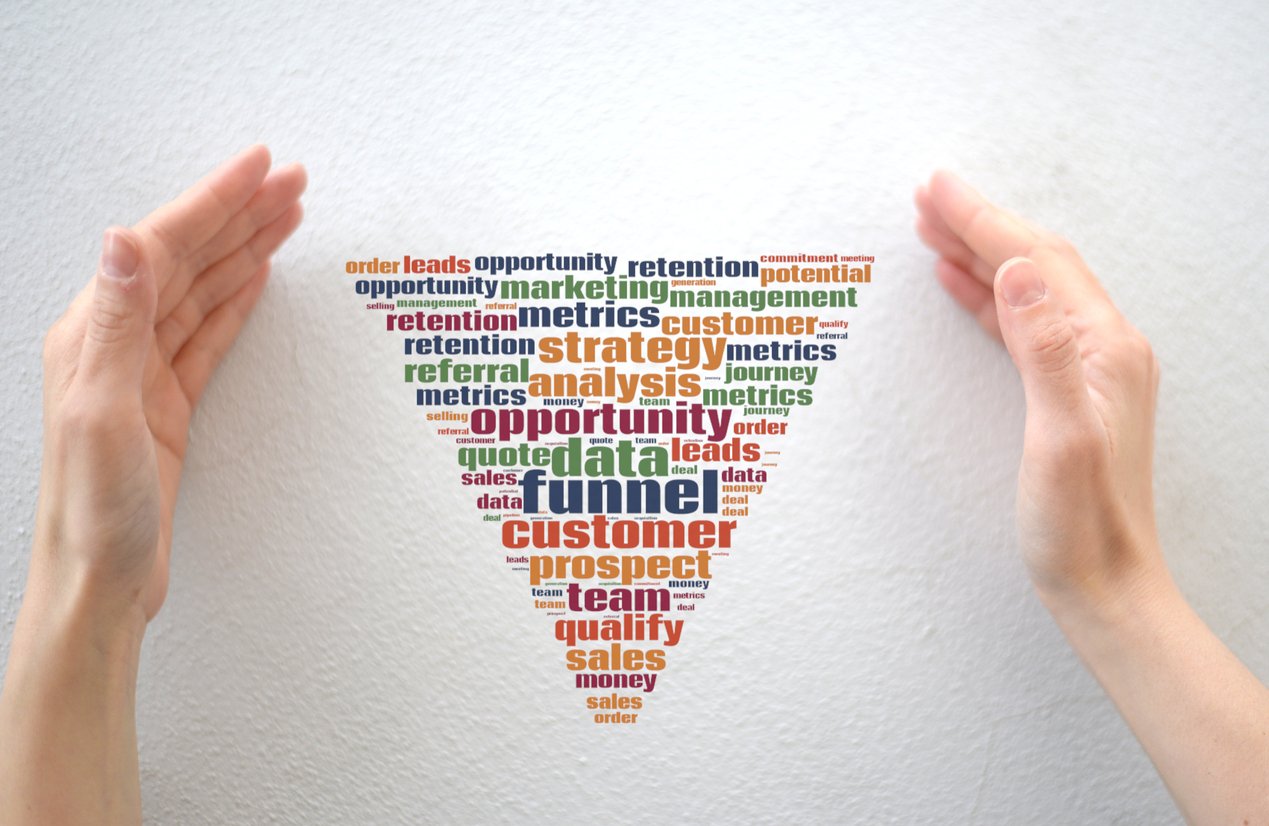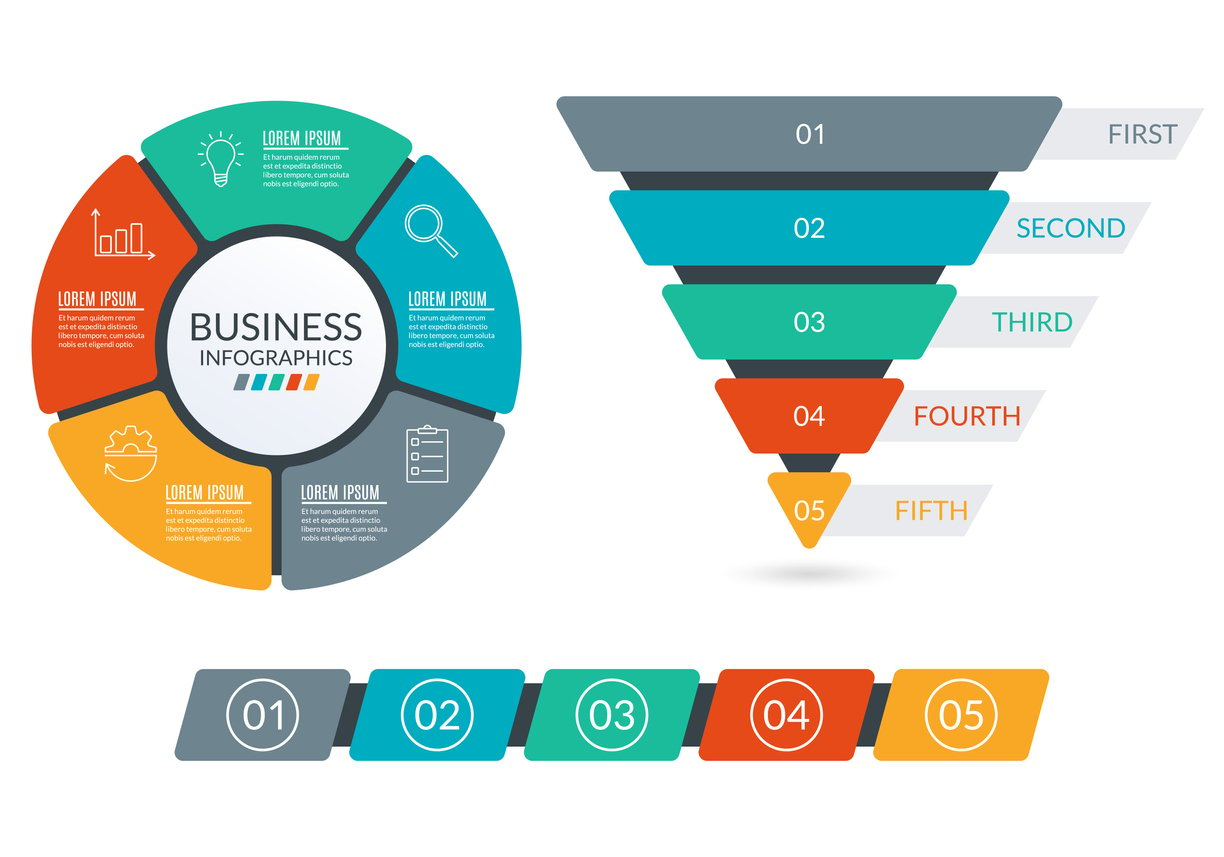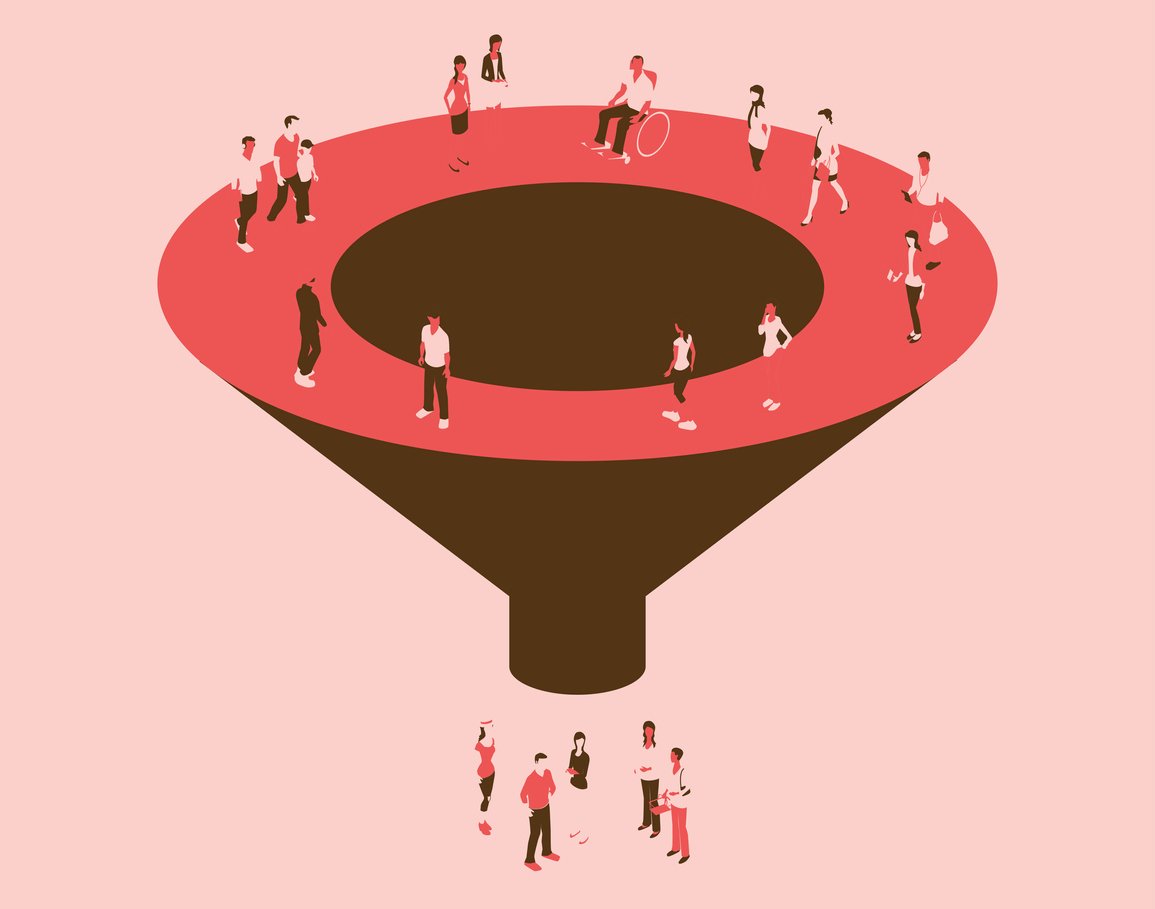
18 Essential Sales Skills for Associates & Managers
 Updated on
Updated on
 By Carlos Correa
By Carlos Correa
Carlos Correa
Carlos has been involved in the sales space for well over ten years. He began in the insurance space as an individual sales agent, managing teams as s...
learn more
Carlos Correa
Carlos has been involved in the sales space for well over ten years. He began in the insurance space as an individual sales agent, managing teams as s...
Table of Contents
Table of Contents
You can have the best product in the world, the slickest marketing campaign, and the flashiest website, but if your sales team doesn't have the right sales skills, you'll still end up staring at flat revenue charts and missed quotas.
That's the part most businesses forget.
Sales isn't magic. It's a skillset; one you can train, refine, and scale with the right tools.
Sales skills are the connective tissue between product and profit. They turn cold outreach into conversation, and objections into opportunities.
In this guide, we'll break down the 18 most essential sales skills every professional needs today, along with role-specific insights, training strategies, and modern tools like Ringy's CRM and automation platform that make those skills easier to build and apply.
Core Sales Skills Everyone Needs to Succeed

There's no fancy tech, no quick trick, and no secret sauce that replaces the basics. Before worrying about closing techniques or CRM automations, you have to master the fundamentals.
To make this section easier to digest, here's a quick look at the five essential sales skills every professional needs, summarized below, before we explore each in depth.
|
Core Skill |
Primary Focus |
Outcome When Mastered |
|
Sales Communication Skills |
Clear and empathetic dialogue |
Stronger client trust and understanding |
|
Sales Negotiation Skills |
Win-win outcomes and value creation |
Higher closing rates and profitability |
|
Sales Presentation Skills |
More persuasive and memorable pitches |
|
|
Sales Soft Skills |
Emotional intelligence and adaptability |
Stronger relationships and teamwork |
|
Sales and Customer Service Skills |
Post-sale experience and care |
Retention, loyalty, and repeat business |
While this table outlines the basics, each of these skills deserves a more in-depth examination.
Let's take them one by one.
Sales Negotiation Skills
Few parts of sales make the average person's palms sweat like negotiation. It's the moment when value, confidence, and timing collide (especially in outbound sales.)
But here's the truth: negotiation doesn't have to feel adversarial. It's not about outsmarting the buyer; it's about aligning interests.
Let's use a common scenario: a customer loves your product but pushes back on price. Instead of reacting defensively, a skilled negotiator leans in with curiosity. You might ask, "What about the price feels off to you?" That simple question reframes the discussion and keeps it constructive.
To become a better negotiator, use this structured framework:
- Prepare like a pro. Know your numbers, your walk-away point, your must-haves, and your ideal deal terms.
- Ask before answering. Find out what your customer truly values. Price objections often hide timing, trust, or comparison issues.
- Trade, don't concede. If you give a discount, get something in return, a longer contract, a testimonial, or a referral.
The problem is that most salespeople practice negotiation in live situations rather than controlled ones. That's where sales negotiation skills training and role-play exercises help (Ringy, our sales software, helps too.)
Sales Presentation Skills
Imagine this. You've worked hard to get a meeting with a key decision-maker. You open your deck, start talking, and fifteen minutes later, their eyes glaze over. You just lost the room.
That's what happens when presentation skills lag behind preparation.
The best presentations feel less like lectures and more like conversations with purpose. You're not performing for your audience, you're collaborating with them to explore solutions.
Let's compare what most presentations look like versus what they should be:
|
Common Approach |
Improved Approach |
|
Slides crammed with text and stats |
Minimal slides that focus on core ideas |
|
Talking nonstop for 30 minutes |
Pausing for input and engagement |
|
Emphasizing product features |
Framing outcomes and business value |
|
Ending with "Any questions?" |
Ending with a confident, guided next step |
When your story is clear and your visuals are simple, your audience remembers you, not your slides.
If you want to get better fast, record your presentations and watch them back. Are you rushing? Are you connecting? Are you confident? Ringy makes this easy by integrating video call recordings directly into your CRM, so you can annotate feedback and share it with your team for improvement.
Sales Soft Skills
Technical skills can get you hired, but soft skills get you promoted.
Soft skills are the personality-driven attributes that make others want to work with you. They're your ability to handle stress, stay positive, adapt quickly, and empathize deeply.
No CRM or script can substitute for human authenticity. You can automate follow-ups, but you can't automate empathy.
Consider what happens when two reps face rejection. One spirals into self-doubt; the other takes a deep breath, reflects, and tries again with a smile. That difference isn't luck; it's mindset mastery.
If you're unsure where you stand, try journaling after each call. Note what went well, what didn't, and what emotion dominated the conversation. Over time, you'll begin to see patterns in your behavior.
Sales and Customer Service Skills
The sale doesn't end when the contract is signed.
If anything, that's when the real work begins.
Customers who feel neglected after buying are less likely to return. That's why combining sales and customer service skills creates a complete experience that fosters loyalty.
Here's a simplified look:
|
Poor Customer Experience |
Excellent Customer Experience |
|
One-off transactions |
Long-term relationships |
|
Delayed responses |
Prompt, proactive follow-ups |
|
No system tracking interactions |
Integrated CRM with shared visibility |
When your sales team collaborates with your service team, customers stop seeing "departments" and start seeing one united brand.
By using Ringy's CRM, sales and service teams can share notes, automate post-sale check-ins, and send personalized updates to clients without relying on manual reminders. That keeps communication smooth, consistent, and personal, exactly what today's customers expect.
Role-Specific Sales Skills to Learn

Every role in sales has its own flavor, rhythm, and focus. The sales associate greets, informs, and warms the lead. The manager strategizes and motivates. The engineer translates complex ideas into clarity. The operations team builds the system that makes everyone else shine.
You might share the same goals: more revenue, happier customers, stronger performance.
But how you get there depends on your role-specific sales skills.
To give you a quick overview, here's a table summarizing the key focus areas by role before we unpack them in detail.
|
Role |
Primary Focus |
Essential Skills |
Why It Matters |
|
Sales Associate |
Customer-facing support |
Product knowledge, empathy, teamwork |
First impressions shape brand trust |
|
Sales Manager |
Leadership and strategy |
Forecasting, coaching, communication |
Drives team success and consistency |
|
Sales Rep |
Pipeline growth |
Prospecting, qualification, closing |
Direct revenue generator |
|
Sales Engineer |
Technical expertise |
Product demos, consultation, problem-solving |
Connects product value to buyer needs |
|
Sales Assistant |
Coordination and admin |
Organization, CRM accuracy, scheduling |
Keeps deals moving smoothly |
|
Sales Operations |
Systems and analysis |
Reporting, automation, process design |
Powers efficiency across the team |
Each role plays a vital part in the symphony of sales performance. Let's explore how these skills take shape in real business scenarios.
Sales Associate Skills
If you're a sales associate, you're often the first voice or face a customer encounters. That first impression matters more than any ad campaign ever could.
Your goal is to create comfort, connection, and curiosity. You're not just answering questions; you're opening doors.
Here's what separates good associates from great ones:
- Product knowledge that feels natural. You don't just memorize specs; you understand how each feature solves a problem.
- Empathy on display. You make every customer feel like their question is worth your full attention.
- Team coordination. You support colleagues with shared goals, not competition.
When building your sales associate resume skills section, go beyond generic phrases like "good communicator."
Instead, demonstrate impact:
"Increased average transaction value by 18% through personalized upselling."
Using Ringy CRM, associates can log customer interactions, track preferences, and follow up automatically, ensuring no opportunity is forgotten. At its best, a sales associate's role is about human connection. When you focus on making customers feel understood, the sale becomes almost effortless.
Sales Manager Skills
Stepping into management changes everything. Suddenly, your performance isn't measured by your own deals, but by the growth of your team.
It's not about being the best closer anymore; it's about developing others into closers.
Let's clear up a common misunderstanding: being a top rep doesn't automatically make you a great manager. Leadership requires patience, empathy, and clarity. You must help others discover what drives them, then shape systems that support it.
For example, while general sales manager skills for a resume emphasize pipeline reviews, performance tracking, and CRM insights, family footwear sales manager skills for a resume might focus more on staff coordination, merchandising, and daily retail operations.
Sales Rep Skills
Being an inside sales representative means living in the balance between persistence and patience. You're part strategist, part psychologist, and part problem-solver.
You are the heartbeat of revenue.
Reps often face one of two problems: too many leads to handle or not enough qualified ones. The solution is the same: prioritization.
Let's look at what top-performing reps do differently:
|
Skill |
How It's Applied in Real Sales |
|
Prospecting |
Using CRM data to target ideal buyers and automate outreach. |
|
Qualification |
Asking questions that uncover intent and fit early. |
|
Objection Handling |
Using empathy and facts instead of scripts. |
|
Closing |
Building urgency through clear next steps, not pressure. |
A strong CRM, like Ringy, allows reps to automate repetitive steps, such as follow-ups, freeing up time for deeper relationship-building. When your process runs efficiently, your energy goes where it matters most: the customer.
Sales Engineer Skills
Sales engineers are the interpreters of the sales world. You take complex technology, translate it into simple human terms, and make buyers say, "That's exactly what I need."
Think of yourself as a bridge between two worlds: engineering and customer experience.
Your most valuable strengths include:
- Deep product and technical knowledge
- Excellent presentation and demo abilities
- Cross-functional collaboration with developers and marketers
- Confidence in handling complex questions on the spot
Strong sales engineers don't just explain, they guide clients to visualize success. By connecting Ringy's CRM analytics to live demonstrations, for instance, you can show prospects how automation actually simplifies their workflows instead of just telling them.
When you help customers understand the "how," they stop doubting the "why."
Sales Assistant Skills
Behind every high-performing team is an organized, responsive sales assistant who keeps the chaos under control.
Sales assistants are the difference between an organized pipeline and a mess of missed follow-ups.
If you're crafting your sales assistant CV, highlight skills such as:
- CRM data accuracy
- Calendar management
- Task prioritization
- Attention to detail
Hiring managers love applicants who can anticipate needs. If your current system uses Ringy CRM, leverage its task automation features to show you know how to streamline team processes.
Sales Operations Skills
Sales operations professionals don't often get the spotlight, but they are the backbone of scalable sales success.
If sales reps are the engine, operations are the oil. Your responsibilities might include creating performance dashboards, maintaining CRM accuracy, or designing workflows that eliminate bottlenecks.
For example, using Ringy's analytics, sales ops can instantly view which parts of the funnel underperform and adjust automation accordingly.
Advanced Sales Skills and Techniques

Once you've built a solid foundation, it's time to move from competence to mastery. This is where sales becomes less about process and more about influence, insight, and strategy.
Advanced sales professionals know how to balance intuition with data, and leadership with empathy. You don't just close deals anymore; you shape how your team, your clients, and even your company think about growth.
Here's a quick overview of the advanced skills we'll break down below:
|
Advanced Skill |
Key Focus Area |
Primary Outcome |
|
Sales Coaching Skills |
Developing others through feedback and frameworks |
Higher team performance |
|
Sales Management Skills |
Strategy, measurement, leadership |
Sustainable growth |
|
Sales and Marketing Skills |
Consistent messaging and stronger pipeline |
|
|
Sales Skills for the Digital Age |
AI, CRM, and automation proficiency |
Efficiency and personalization at scale |
Ultimately, it's about connecting with people, understanding their needs, and guiding them toward solutions that truly help them thrive.
Let's dig deeper.
Sales Coaching Skills
There's an old saying in sales management: "You can't scale success unless you can teach it."
That's where coaching comes in.
Sales coaching skills involve guiding team members through structured feedback and performance development frameworks to improve consistency, confidence, and conversion rates. Coaching is less about telling people what to do and more about helping them discover the best version of how they do it.
Great coaches don't just fix mistakes; they build awareness.
They start by asking questions instead of issuing commands. Questions like:
- "What part of that call felt strongest to you?"
- "What do you think the customer was trying to tell you between the lines?"
- "If you could redo one moment, which would it be and why?"
These aren't trick questions. They're designed to make your reps think, reflect, and grow.
One effective method is the GROW framework, which consists of four key elements: Goal, Reality, Options, and Way Forward. It's simple but powerful for structuring coaching conversations that stay positive and action-oriented.
Here's how it works in practice:
|
Step |
Purpose |
Example |
|
Goal |
Define what success looks like. |
"You want to improve your close rate by 10% this quarter." |
|
Reality |
Assess where things stand now. |
"Your current rate is 18% with high drop-offs after the demo." |
|
Options |
Brainstorm actionable improvements. |
"What if we adjust your follow-up script or shorten your demo?" |
|
Way Forward |
Commit to measurable steps. |
"We'll test the new approach next week and review the data." |
If you're managing a team, Ringy CRM can make coaching data-driven by tracking each rep's performance metrics (calls, closes, response times) and connecting them to specific feedback sessions.
When reps can see their progress visually, coaching feels less like critique and more like collaboration.
Sales Management Skills
Leadership in sales is about guiding a team to victory while ensuring everyone feels like they had a hand in winning.
The challenge many managers face is balancing the dual pressures of results and relationships. Push too hard, and morale dips. Get too lenient, and performance stagnates. The art lies in blending accountability with empathy.
Here's a practical view of what excellent sales managers consistently do:
- Set clear goals. Ambiguity kills motivation. Define what success looks like weekly, monthly, and quarterly.
- Track the right metrics. Volume alone doesn't equal success. Monitor conversion rates, deal velocity, and pipeline health.
- Lead by example. Jump into calls occasionally. Show your team you understand their challenges.
- Recognize and reward. Celebrate both wins and improvements. Recognition builds loyalty.
- Encourage collaboration. Create channels for knowledge-sharing between experienced and new team members.
When documenting your sales management skills for a resume, emphasize measurable outcomes:
"Led a 12-person team to achieve 135% of quarterly revenue targets while reducing churn by 18%."
Ringy helps managers automate weekly reporting, visualize KPIs, and set reminders for coaching touchpoints, ensuring leadership becomes structured and proactive rather than reactive.
Sales and Marketing Skills
If sales and marketing were people, they'd probably argue a lot, but secretly, they need each other to survive.
Alignment between these two departments is one of the most underrated yet impactful advantages a company can build.
Without alignment, marketing generates leads that sales can't close, and sales ignores the content marketing produces. The result is wasted effort on both sides.
Here's how to make the two work together seamlessly:
- Share definitions of success. Agree on what qualifies as a "sales-ready lead."
- Use the same data tools. CRMs like Ringy sync marketing campaigns with lead pipelines so both teams see the same information.
- Coordinate messaging. Sales should reinforce the stories that marketing tells, not contradict them.
- Close the feedback loop. After campaigns, sales should share which leads converted and why.
When marketing understands what sales hears from the field, content gets sharper. When sales uses marketing insights, conversations start stronger.
Sales Skills and Techniques for the Digital Age
Sales in 2025 looks very different from sales in 2010. The handshake has moved to video calls, the business card to a CRM profile, and the follow-up email to an automated sequence that knows your customer's preferences better than they do.
Modern sales skills require digital fluency, tech comfort, and analytical thinking.
Here's what every digital-age salesperson must master:
|
Skill |
Application |
Benefit |
|
CRM Proficiency |
Understanding and maintaining customer data. |
Better forecasting and retention. |
|
Sales Automation |
Setting triggers for follow-ups and reminders. |
Saves hours of manual work weekly. |
|
AI and Analytics |
Using predictive tools to score leads. |
Focuses energy on the most promising prospects. |
|
Omnichannel Selling |
Integrating email, phone sales, and social outreach. |
Creates consistent buyer experiences. |
With Ringy's AI-driven automation, you can create personalized drip campaigns, set reminders for high-priority leads, and automatically log every call and message. The result is less admin, more selling.
How to Improve Sales Skills

Here's the hard truth: even the best sellers can go stale. The top performers today aren't the ones who know it all, but the ones who keep learning. Improving your sales skills isn't a one-time course or a motivational quote on your desk. It's a continuous cycle of reflection, practice, feedback, and adaptation.
Sales Skills Training and Development
You can't improve what you never measure, and you can't master what you never practice.
Now, here's where many companies fall short. They throw their team into a three-day training session, hand them a workbook, and expect miracles.
The reality? Skills fade fast without reinforcement.
The best sales training programs are continuous, contextual, and tracked.
Here's an example:
|
Training Stage |
Focus Area |
Example Activities |
|
Learn |
Absorb new concepts and techniques |
Attend live workshops, complete role-play scenarios |
|
Apply |
Practice skills in real-world settings |
Implement new talk tracks, test negotiation scripts |
|
Reinforce |
Review performance and adjust |
One-on-one coaching using CRM analytics |
If you want to see real improvement, combine intentional learning with visible metrics. Numbers don't lie, and neither do happy clients.
Sales Skills Assessment
Improvement without measurement is just guesswork.
A sales skills assessment test shows you where you stand and what's holding you back. But it's not just about scoring your skills; it's about identifying patterns that help you grow faster.
Imagine taking a driving test every six months, not because you forgot how to drive, but because the road keeps changing. That's what assessment does: it keeps your skills aligned with modern expectations.
There are three main assessment methods worth using:
- Manager evaluations: Direct observation and feedback based on daily performance.
- Peer feedback: Team-based reviews that help surface blind spots you might not see.
- CRM-driven analytics: Objective, data-based performance insights (like call-to-close ratios or email response rates).
Ringy makes the third one seamless. Managers can use the dashboard to review rep activity, pinpoint drop-offs in the funnel, and tie real-time data back to specific coaching plans.
Sales Skills for Resume and CV
Your resume is your personal sales pitch. Every bullet point should communicate value, results, and proof that you're worth meeting.
Too many sales professionals fill their resumes with duties instead of achievements. Employers already know what a sales rep does; what they want to see is what you delivered.
Let's take a quick look at how different roles should showcase their top skills:
|
Role |
Key Skills to Highlight |
Example Resume Line |
|
Sales Associate |
Product knowledge, upselling, customer rapport |
"Increased average order value by 22% through personalized recommendations." |
|
Sales Representative |
Prospecting, lead management, negotiation |
"Closed 35% of inbound opportunities using data-driven follow-ups." |
|
Sales Manager |
Coaching, pipeline forecasting, leadership |
"Led 10-person team to 120% quota attainment with 95% retention." |
|
Sales Engineer |
Technical expertise, demos, cross-functional collaboration |
"Translated technical specs into customer outcomes, shortening sales cycles by 18%." |
|
Sales Operations |
Data analysis, process optimization, CRM administration |
"Automated weekly reporting processes, reducing manual input by 70%." |
If you use Ringy CRM, mention it on your resume. Familiarity with automation tools signals efficiency and modernity, traits every hiring manager values.
Putting It All Together: Developing Future-Proof Sales Talent

Every great salesperson knows that skill isn't static; it's a living thing. You refine it, reshape it, and sometimes rebuild it completely as the world changes around you. The strongest performers don't chase perfection; they chase progress.
Here's how you can keep your edge sharp and your career future-proof.
Importance of Continuous Sales Skills Development
Sales is an ever-moving target. What works this quarter might flop next year, and the only constant is your ability to keep learning. Growth in sales doesn't come from massive leaps; it comes from small, consistent improvements; practicing better questions, fine-tuning your timing, and reflecting after every call.
Balancing Technical Skills with Human-Centric Soft Skills
You can automate emails, analyze pipelines, and forecast revenue with AI, but you can't automate human connection. The best salespeople know when to let technology work for them, not instead of them.
How to Future-Proof Your Career in Sales
Future-proofing your career isn't about chasing trends; it's about staying adaptable. Learn the tools, yes, but stay rooted in the fundamentals: clear communication, genuine curiosity, and empathy.
Combine those timeless skills with a modern CRM like Ringy, and you'll be unstoppable.
Upgrade Your Sales Skills Today
So start today. Refine one skill, master one habit, and take one step closer to becoming the kind of salesperson everyone remembers.
Grow with Ringy, where better sales start with smarter systems.
Sign up for a free trial and watch your sales soar!

Skyrocket your sales with the CRM that does it all.
Calling? Check. SMS? Check. Automation and AI? Check. Effortlessly keep in touch with your customers and boost your revenue without limits.

Take your sales to new heights with Ringy.
Sales in a slump? Ringy gives you the tools and flexibility you need to capture leads, engage with them, and turn them into customers.
Subscribe to Our Blog
Enter your email to get the latest updates sent straight to your inbox!
Categories
Related Articles




































































































